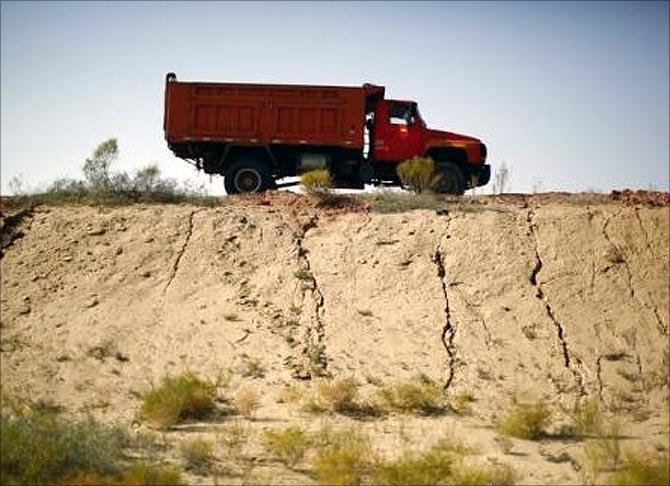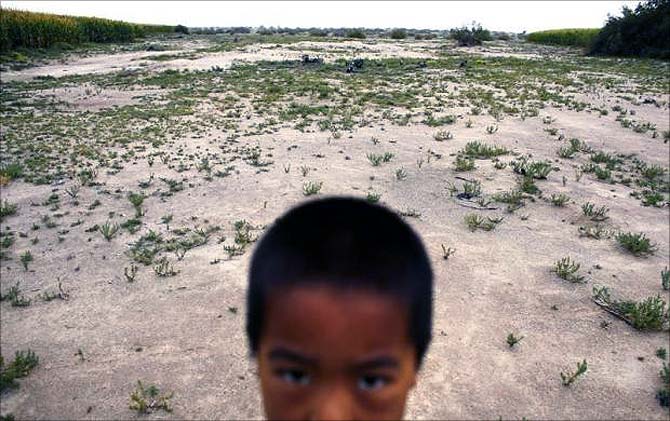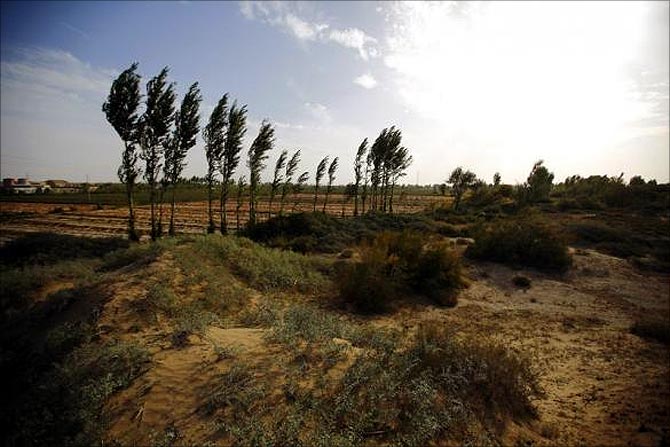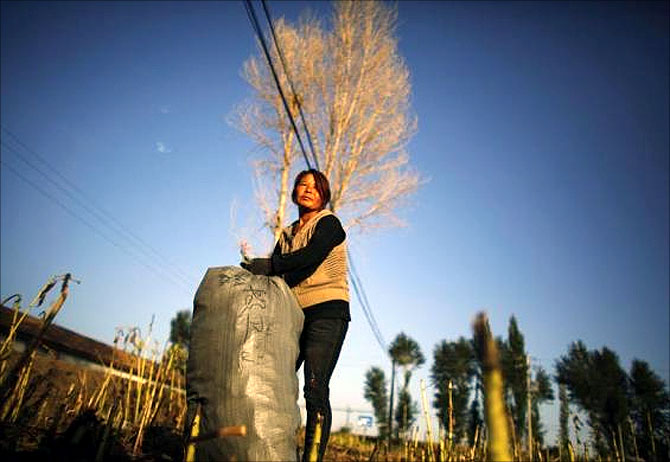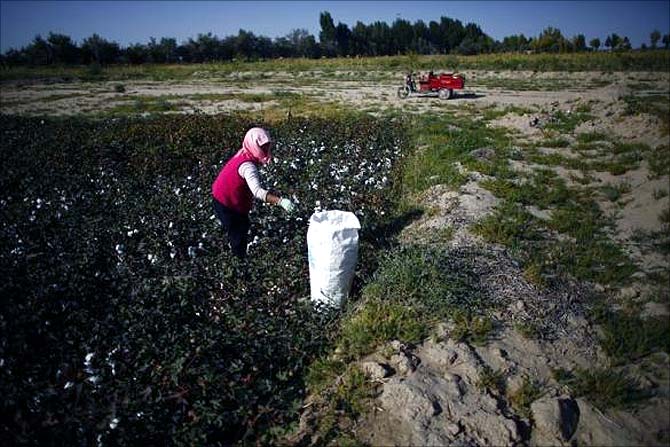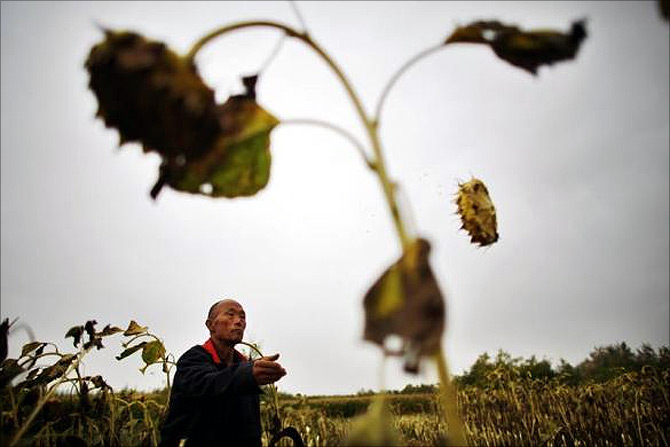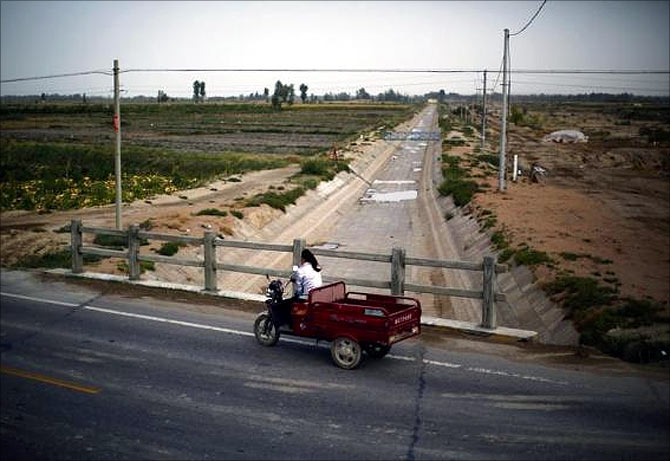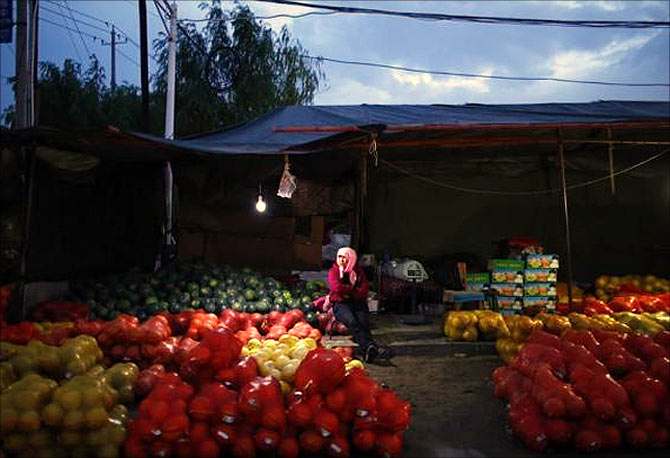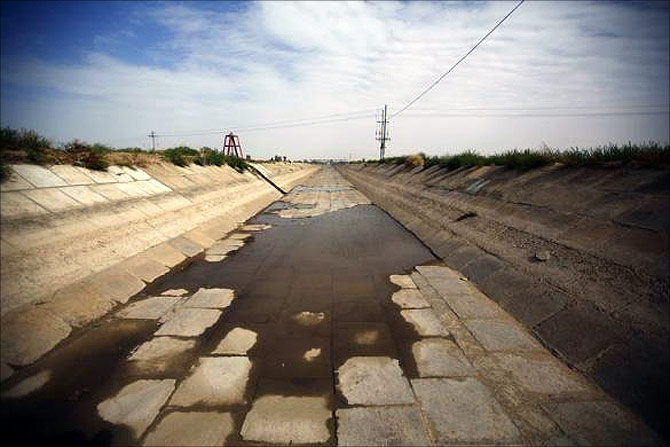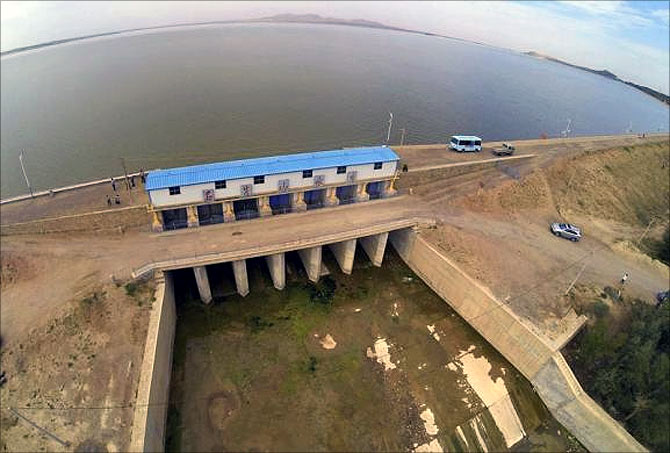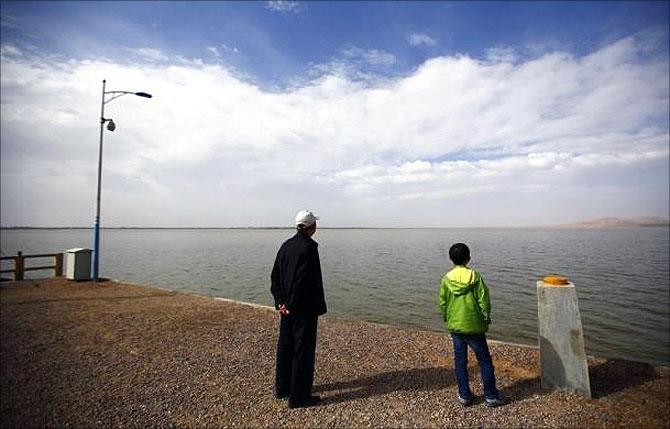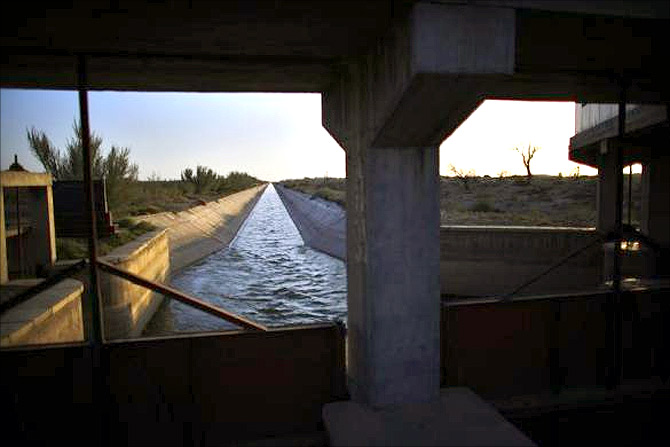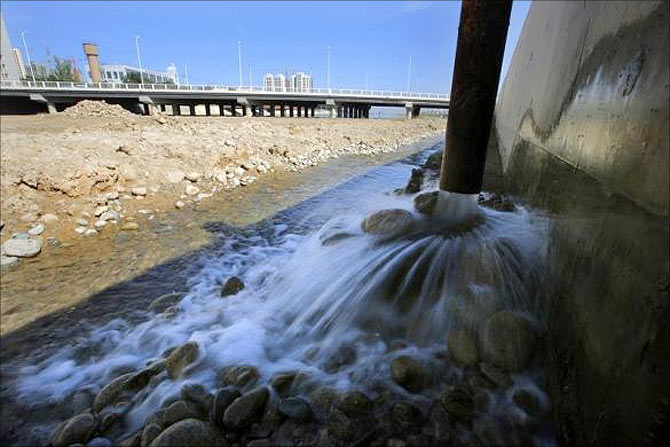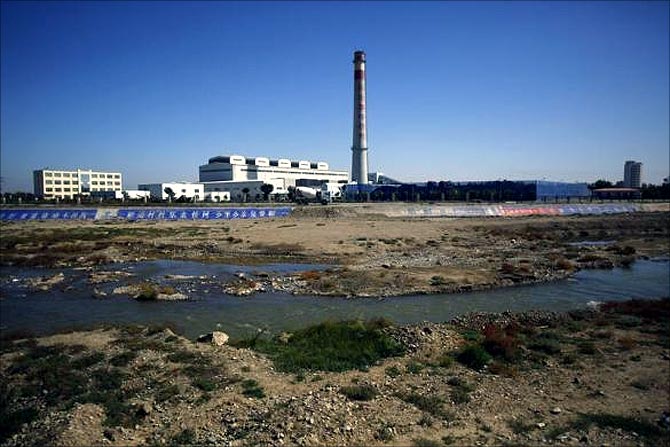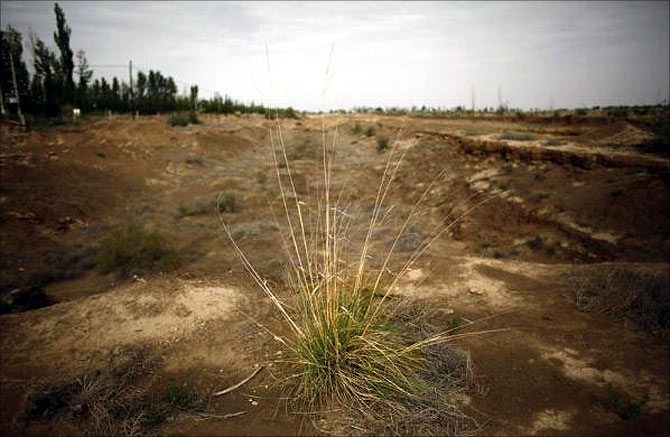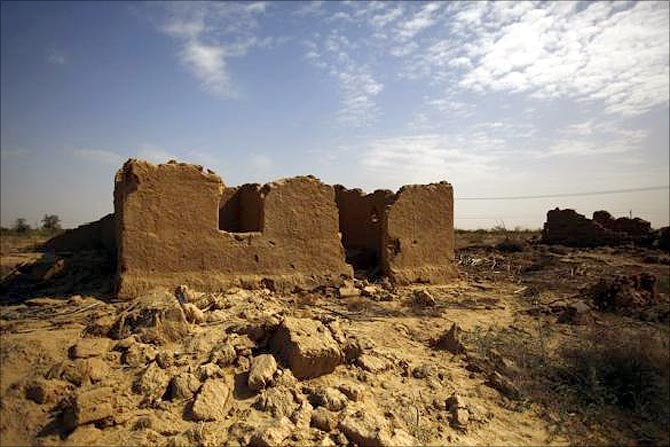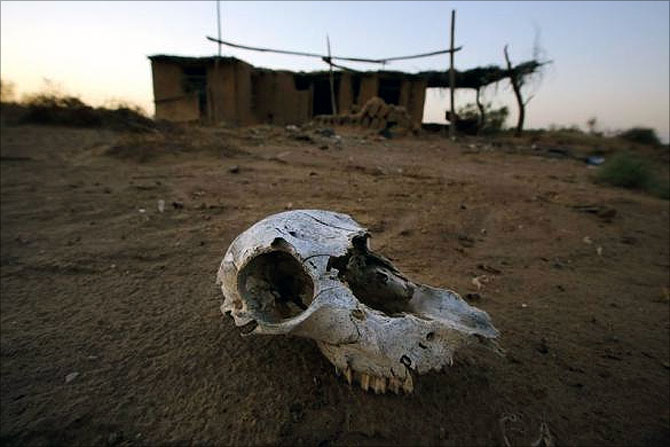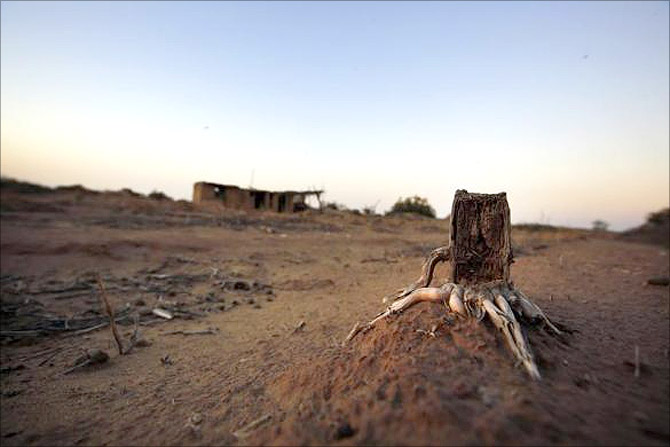 | « Back to article | Print this article |
Big crisis: Why superpower China is thirsty
For China, global warming has become something of a convenient truth.
Beijing blames climate change for wreaking havoc on scarce water resources, but critics say the country's headlong drive to build its industrial prowess and huge hydro projects are just as responsible.
Click NEXT to read more…
Big crisis: Why superpower China is thirsty
On the eve of a global climate change conference in Stockholm, a U.N. climate body says shrinking glaciers in central Asia and the Himalayas would affect water resources in downstream river catchments, which include China.
Click NEXT to read more…
Big crisis: Why superpower China is thirsty
"Some regions are already near the critical temperature threshold," the Intergovernmental Panel on Climate Change (IPCC) said in a draft summary report obtained by Reuters.
Click NEXT to read more…
Big crisis: Why superpower China is thirsty
"In parts of Asia, increases in flood and drought will exacerbate rural poverty, due to negative impacts on rice crops and increases in food prices and costs of living."
Click NEXT to read more…
Big crisis: Why superpower China is thirsty
Rising temperatures are likely to speed icecap melting in the Himalayas, which could bring first floods and then severe drought, with diminished seasonal melts unable to replenish China's rivers, including the mighty Yangtze.
Click NEXT to read more…
Big crisis: Why superpower China is thirsty
This year, China published a national "water census" showing that as many as 28,000 rivers logged in a government database had vanished since the 1990s, leaving just under 23,000.
Click NEXT to read more…
Big crisis: Why superpower China is thirsty
The census gave no reason for the disappearance, but China's weather bureau said several major rivers, including the Yellow River, a massive northern waterway linking nine provinces, had been dwindling since 1970 and the trend was likely to continue.
Click NEXT to read more…
Big crisis: Why superpower China is thirsty
"We have witnessed major fluctuations in precipitation in different parts of China," said Ma Jun, a water expert and director of the Institute of Public and Environmental Affairs (IPE), which monitors China's rivers.
Click NEXT to read more…
Big crisis: Why superpower China is thirsty
"One thing in the mind of policymakers and researchers is that climate change will add to uncertainties -- in some areas, the water supply situation is already quite tense."
Click NEXT to read more…
Big crisis: Why superpower China is thirsty
But rising temperatures are only part of China's problems, many of which have resulted from overpopulation, aggressive industrialisation and a huge reliance on elaborate engineering schemes to irrigate crops and harness scarce supplies.
Click NEXT to read more…
Big crisis: Why superpower China is thirsty
"China's water shortages stem more from problematic urbanisation and water resource management, rather than the scapegoat of climate change," said Zhou Lei, a fellow at Nanjing University who studies how industry affects the environment.
Click NEXT to read more…
Big crisis: Why superpower China is thirsty
"In my home town in Jiangxi, the water system consisted of underground springs, ponds, wetlands, brooks, streams, and seasonal rivulets, but all these have been totally ruined in the last 20 years due to a catastrophic urbanisation plan, a construction mania and transport megaprojects," he said.
Click NEXT to read more…
Big crisis: Why superpower China is thirsty
Wringing China dry
China has vowed to spend trillions of yuan to boost supplies, clean rivers and protect water tables.
Click NEXT to read more…
Big crisis: Why superpower China is thirsty
But even if supplies remain steady, water resources per person, now at 2,100 cubic metres or 28 percent of the global average, are expected to decline further as the population grows.
Click NEXT to read more…
Big crisis: Why superpower China is thirsty
At the same time, Beijing still needs to feed its growing food, energy and industrial demand.
Hundreds of rivers have already vanished in northwestern Gansu, one of the country's driest regions.
Click NEXT to read more…
Big crisis: Why superpower China is thirsty
In the town of Minqin, residents said the problem was not new, with the nearby Shiyang river disappearing not because of temperature rises, but because a vast upstream reservoir built two decades ago to irrigate a large farm cut off their supply.
Click NEXT to read more…
Big crisis: Why superpower China is thirsty
China has long sought to wring as much water as it can from its parched earth, but is approaching the limits of what it can retrieve. Projections expect total annual demand to reach 700 billion to 800 billion cubic metres by 2030, only slightly lower than total available supplies.
Click NEXT to read more…
Big crisis: Why superpower China is thirsty
"In the last 50 years we have mainly focused on expanding water supplies, but at this moment I think we have in many areas reached our limit and we need to shift our focus to conservation," said Ma.
Click NEXT to read more…
Big crisis: Why superpower China is thirsty
The reliance on megaprojects to solve shortages has created a vicious circle, channelling water to state-owned farms, giant industrial plants or hydropower stations, diverting natural flows and leaving surrounding areas more parched than before.
Click NEXT to read more…
Big crisis: Why superpower China is thirsty
Some regions desperate for growth have been forced to choose between water and energy. Gansu plans to build several giant hydro plants in the upper reaches of the Yellow River, defying warnings that this could restrict downstream water supplies.
Click NEXT to read more…
Big crisis: Why superpower China is thirsty
Elsewhere, green groups say scarce water resources are being diverted from agriculture to profitable coal-fired power plants, with China building thirsty "coal production bases" in dry areas such as Inner Mongolia, Ningxia and Shaanxi.
Click NEXT to read more…
Big crisis: Why superpower China is thirsty
But even flood-prone southwestern provinces have suffered from droughts once regarded as unthinkable.
In Yunnan, dozens of rivers have been dammed to generate power, and complex canal systems built to improve irrigation.
Click NEXT to read more…
Big crisis: Why superpower China is thirsty
Water diversion has made shortages more likely. Several rivers in the province have dried up over the last decade, and drought has been common. In April, hundreds of wells and streams dried up, creating a crisis for thousands of farmers.
Click NEXT to read more…
Big crisis: Why superpower China is thirsty
"China is looking always at megaprojects rather than addressing the root causes," said Zhou.
"They experiment with technologies to treat the problem, like the water transfer projects being done right now, but they are draining resources in a very wrong way."
Click NEXT to read more…
Big crisis: Why superpower China is thirsty
China has put its faith in elaborate engineering and technological solutions such as giant dams and diversion channels, besides cloud seeding and desalination.
Click NEXT to read more…
Big crisis: Why superpower China is thirsty
Its biggest megaproject of all is a vast system of canals known as the South-North Water Diversion project.
Opponents say the project, designed to connect the flood-prone Yangtze with the drought-hit Yellow river through three cross-country canals, including one in the far west, where the two rivers originate, could worsen shortages.
Click NEXT to read more...
Big crisis: Why superpower China is thirsty
"The negative impact of these big engineering projects could be quite serious and some of the problems could be transferred to other areas, especially in the west," said Ma.
"We spent our resources mainly on engineering and on technologies to drill deeper, build dams and work on water diversion projects, but we need to work on conservation."
(Additional reporting by Alister Doyle in Oslo and Carlos Barria in Minqin, China)

© Copyright 2025 Reuters Limited. All rights reserved. Republication or redistribution of Reuters content, including by framing or similar means, is expressly prohibited without the prior written consent of Reuters. Reuters shall not be liable for any errors or delays in the content, or for any actions taken in reliance thereon.
